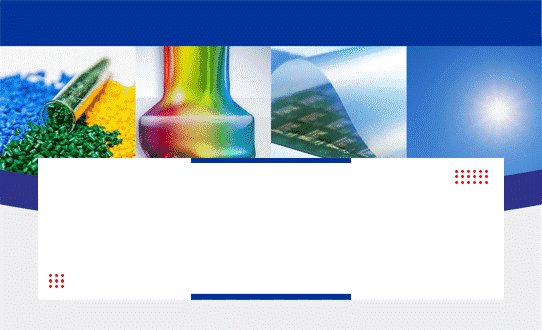

Empowering the Future of High-Quality Ink Manufacturing

Precision Measurement · Efficient Control · Data-Driven Excellence
As the ink industry evolves toward higher precision and premium products, common challenges like inconsistent batch quality, slow manual inspections, and missing quality data stand in the way of growth. That’s where BEVS steps in.
Powered by cutting-edge proprietary technology, BEVS delivers an all-in-one solution spanning R&D, production, and quality control — enabling ink manufacturers to overcome technical hurdles, boost efficiency, and gain unbeatable competitive advantages.
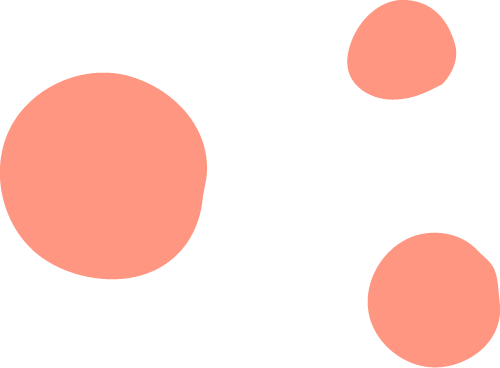
Viscosity is at the heart of every successful printing process—it directly influences ink transfer, smoothness, and drying speed. Getting viscosity just right means flawless ink transfer between rollers and a perfectly stable ink film on your substrates.
In today’s high-speed, high-precision printing world, tight viscosity control isn’t optional—it’s essential. Even minor fluctuations can slow down production, reduce yield, and compromise color accuracy. Unstable viscosity leads to inconsistent solvent use, driving costs up. Worse still, abnormal viscosity can trigger costly downtime and machine tweaks, hurting your bottom line.
With precise viscosity management, you can maximize efficiency, slash waste, and deliver consistently stunning prints every time.
Solution:
Ink, as a non-Newtonian fluid, exhibits viscosity that changes with shear rate. A high-precision viscometer is essential for overcoming measurement challenges and ensuring consistent quality.

BEVS AI Viscometer
▶ Voice & Touch Dual Control: Intuitive smart interaction boosts testing speed, simplifies operation, and streamlines data management like never before.
▶ Intelligent Calibration & Parameter Setup: Automatically avoids wrong settings, ensuring precision every time.
▶ Real-Time Viscosity vs. Shear Rate Curve: Instantly visualize viscosity changes and stay ahead of quality issues.
▶ Seamless Production System Integration: Automatically adjusts dilution ratios on the fly, slashing defect rates and maximizing yield.
Typical Applications:
Real-time control for high-speed gravure and flexographic printing lines, and optimization of high-solid-content ink formulations.

Fineness directly impacts ink flow, dispersion, and stability—key factors for achieving uniform ink transfer, sharp halftone dots, and stunning color performance. When pigment particles are finely dispersed, color strength can boost by 10–15%, with richer saturation and unmatched color consistency. Poor fineness, on the other hand, leads to dull tones and noticeable color variation.
Top-quality inks boast fineness below 15 μm, and for ultra-precise printing needs, even finer particles—down to 5 μm or as small as 1–2 μm—are required. These microscopic particles ensure flawless prints that captivate the eye.
Solution:
Manual fineness inspection with a scraper relies heavily on experience—factors like scraping speed, angle, and lighting (requiring a 30° angled light source) can cause human errors up to 10–15%. We recommend using BEVS Automated Particle Analyzer to overcome these accuracy challenges and ensure consistent quality.

BEVS Automated Particle Analyzer
▶ Built-in light source and automatic scraping reduce manual operation steps.
▶ Uses machine vision technology for automatic fineness analysis, delivering high-precision measurements.
▶ Fast measurement—each test takes only 30 seconds.
▶ Real-time test reports with fineness grades and particle distribution visualization.
Typical Applications:
Full QC inspection of nano-metallic inks and verification of grinding process parameters.

Glossiness stands as a key quality metric for ink, shaping the visual impact of prints, enhancing product allure, and driving stronger market competitiveness.
Solution:
Traditional visual color matching is prone to lighting interference, causing batch color variation disputes in spot color inks. BEVS 1503 Intelligent Glossmeter offers a smart, reliable way to ensure consistent and accurate color measurement.

BEVS Intelligent Glossmeter
▶ Auto-start detection and self-calibration for effortless use.
▶ Simultaneous measurements at 20°, 60°, and 85° angles to mimic gloss under various lighting conditions.
▶ Large storage capacity, holding up to 16,000 sets of triple-angle data.
▶ One-click generation of quality control reports with full data traceability.
Typical Applications:
Ensuring precise acceptance of metallic colors in luxury packaging and real-time monitoring of gloss stability in UV-cured inks.

The pencil hardness tester uses standardized pencils (ranging from 6B to 6H) to scratch the ink surface at a fixed angle (45°) and pressure (500g, 750g, or 1000g). The highest pencil hardness grade that does not break the coating defines the ink’s hardness level.
Luxury packaging inks typically require a hardness of 3H or higher, while book and publication inks usually range from HB to 2H, meeting the varying abrasion resistance needs across different applications.
Solution:
For demanding applications such as automotive interiors and outdoor signage, hardness test reports are essential to validate ink scratch resistance. BEVS Electric Pencil Hardness Tester offers fully automated operation, delivering fast and reliable results.

BEVS Electric Pencil Hardness Tester
▶ Fully automated testing operation
▶ Constant speed with adjustable settings
▶ Adjustable pencil tip force
▶ USB-powered for convenient use
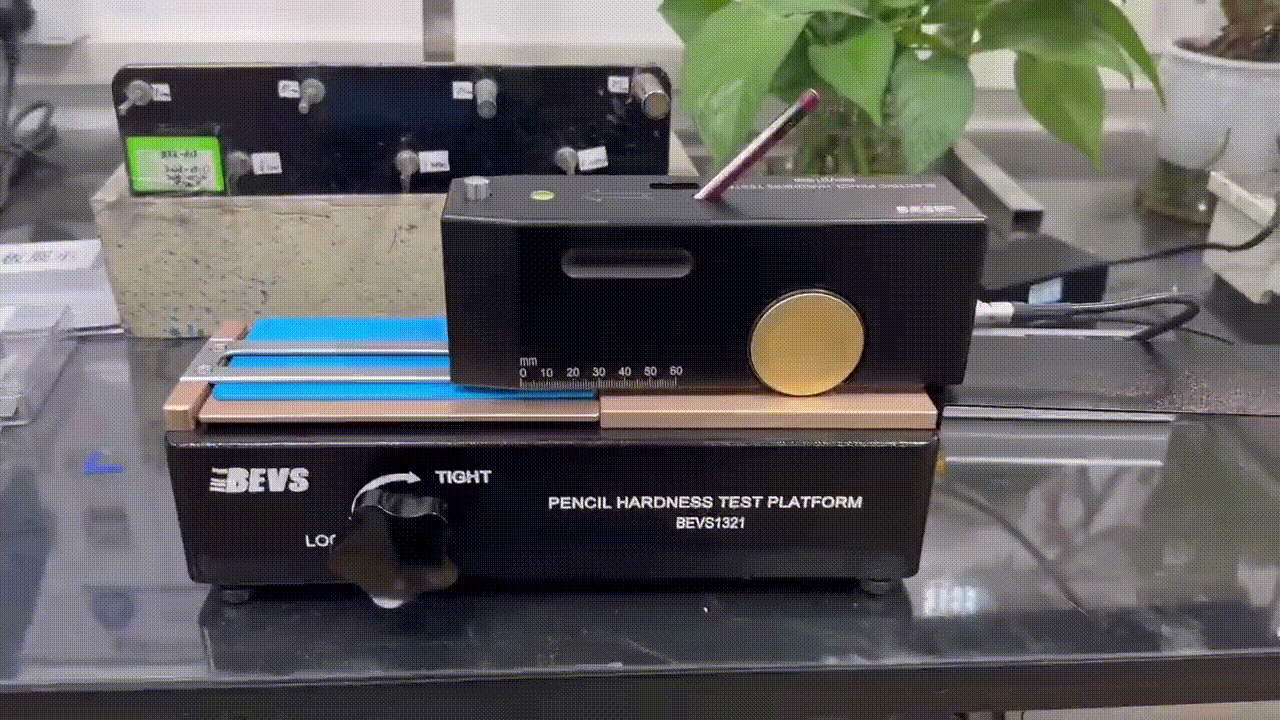
Typical Applications:
Designed for high-durability ink testing in automotive interiors, outdoor signage, and other abrasion-critical environments.

The strength of adhesion between ink and substrate is critical to a print’s resistance to abrasion, scratches, and environmental aging. Poor adhesion can lead to ink peeling during transport or use—resulting in blurred graphics, missing information, or even safety risks, such as ink migration in food packaging.
Inks with poor adhesion show a detachment rate as high as 10–15% during shipping, often triggering product returns—such as entire batches of cigarette cartons being rejected due to ink flaking off.
Solution:
Standards such as ISO 2409, ASTM D3359, and GB/T 9286 all recognize the cross-cut test as the definitive method for evaluating ink adhesion. It is a mandatory inspection item for both factory quality control and customer acceptance.
We recommend BEVS Automatic Cross Cutting Tester — delivering fully automated, one-touch operation for fast, consistent, and reliable results.

BEVS Automatic Cross Cutting Tester
▶ Automated platform rotation and movement for hands-free operation
▶ Compatible with single- and multi-blade cutters, as well as scratch preparation for salt spray testing
▶ Adjustable load pressure to suit coatings of varying thickness
▶ Variable speed and stroke settings to accommodate samples of different sizes
Typical Applications:
Automotive interiors, outdoor advertising, and other durability-critical applications.

Abrasion resistance directly affects the lifespan of printed materials during transport, handling, and end use. Poor abrasion resistance can lead to image or text fading and detachment. By quantifying durability, you can extend the service life of your final product.
Industry Standards for Abrasion Resistance:
Packaging Printing: Dry rub ≥ 50 cycles (GB/T 7706)
Military Printing: Solvent-loaded rub > 30 cycles (ASTM F2357)
Solution:
Adhesion and abrasion resistance are often difficult to quantify—leading to issues like smudged packaging, faded labels, and customer complaints.
We recommend BEVS Multifunction Abraser, designed to simulate real-world usage conditions and deliver reliable, quantifiable results.
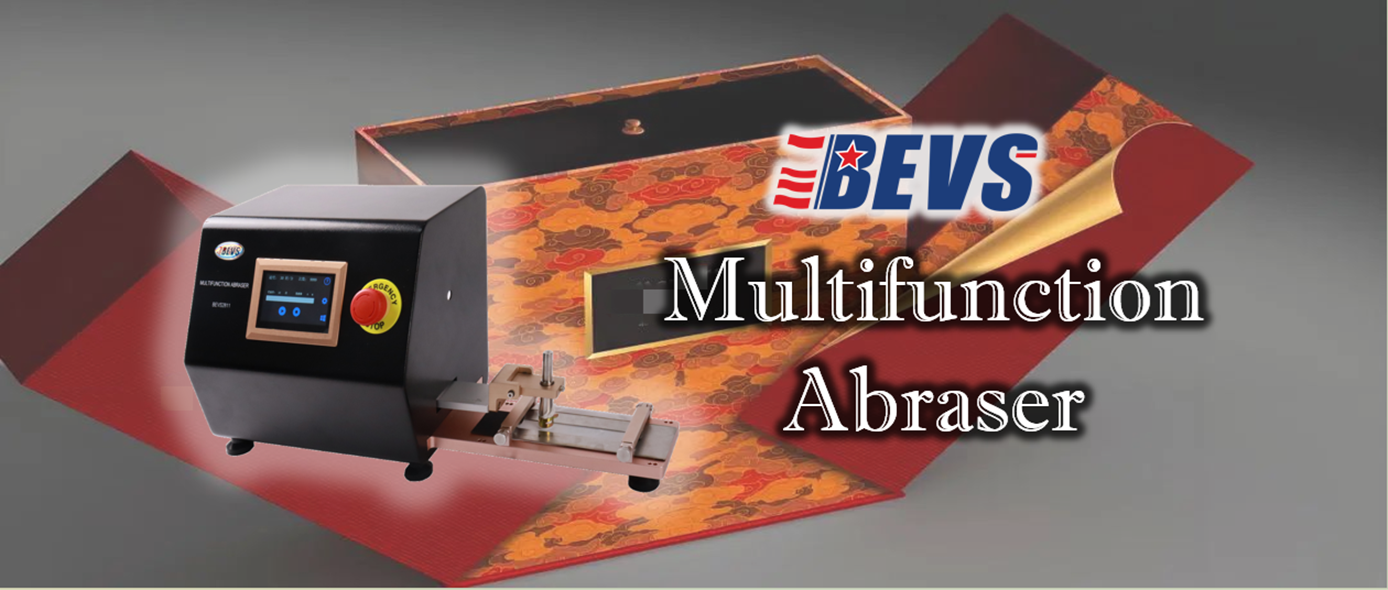
BEVS Multifunction Abraser
▶ 4.3-inch touchscreen for easy, intuitive operation
▶ Advanced friction testing system for highly realistic simulation
▶ Optional software platform for test report generation
▶ Real-time display of test progress, including cycle count and completion rate
Typical Applications:
Perfect for validating abrasion resistance in food-grade packaging and solvent durability in electronic labels.

Ultraviolet (UV) radiation—especially UV-A and UV-B from sunlight—is a primary factor causing ink fading, loss of adhesion, and gloss reduction. While natural weathering can take months or years, weathering testers simulate these effects within days or weeks, significantly shortening testing cycles.
Outdoor inks (such as those used on billboards and vehicle wraps) require testing under extreme conditions: high temperature (70°C), high humidity (95% RH), and UV exposure to ensure durability. Packaging inks undergo humidity-dry cycle tests to guarantee abrasion resistance and color stability during transport—for example, luxury packaging demands a color difference ΔE ≤ 1.5.
Solution:
Applications like outdoor advertising and automotive inks require aging test reports to demonstrate UV stability.
We recommend BEVS Multifunction UV Weather Tester—the ideal solution to tackle ink durability under ultraviolet exposure.

BEVS Multifunction UV Weather Tester
▶ 7-inch HMI touchscreen display
▶ Smart control system for accurate test condition management
▶ Automatic irradiance control with calibration and traceability
▶ Fully automated control of lighting, condensation, and spray functions
▶ Real-time display of testing parameters (irradiance, black panel temperature, temperature/humidity, test duration, etc.)
▶ Large capacity: holds up to 48 standard samples at once
▶ Automated testing process with data export capability
Typical Applications:
Ø Designed for a wide range of ink durability and weathering tests, including:
Ø Outdoor inks (billboards, vehicle wraps)
Ø Packaging inks
Ø Automotive inks
Ø Specialty inks
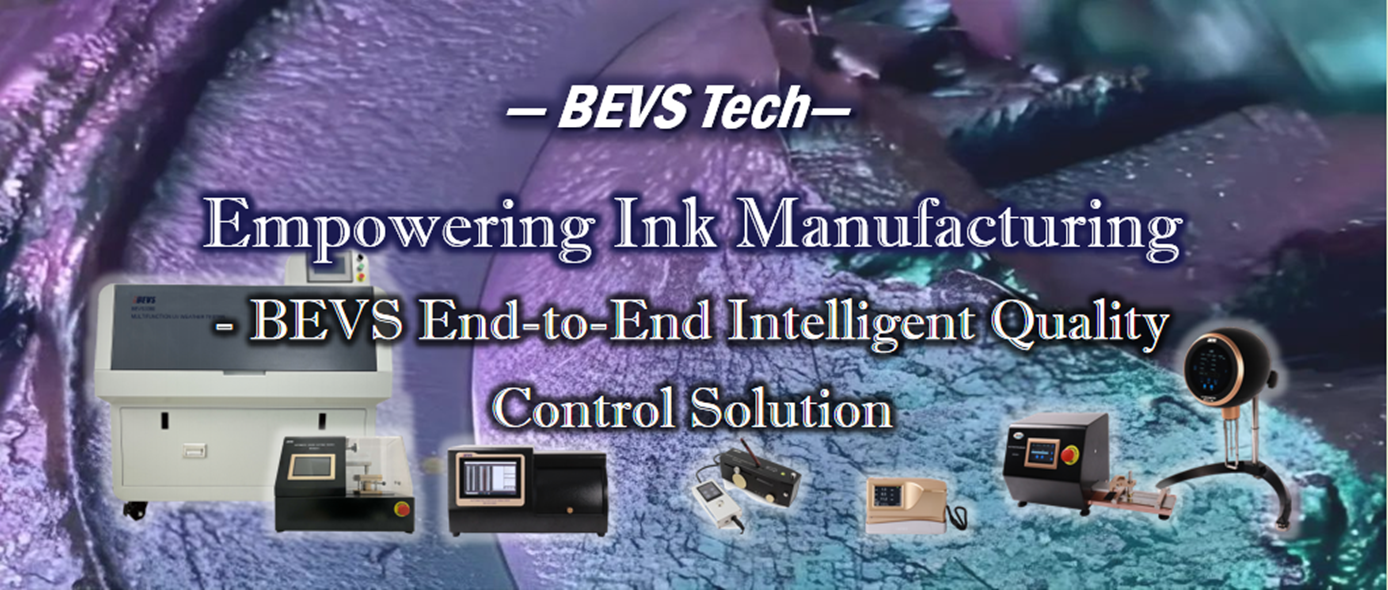


BEVS
1
A leading ink manufacturerLeveraging a combination of AI Viscometer and Automated Particle Analyzer, this company boosted water-based ink production efficiency by 22% and reduced customer return rates to just 0.15%.
2
A specialty UV metallic ink producer
By integrating Automated Particle Analyzer with Intelligent Glossmeter, they cut testing time per batch from 30 minutes to 10 minutes and achieved significantly more consistent fineness values.
BEVS
Redefining Ink Quality Boundaries with Intelligent Testing
We don’t just provide automated equipment —we’re dedicated to partnering with our customers to build a new paradigm of precision smart manufacturing in the ink industry.





